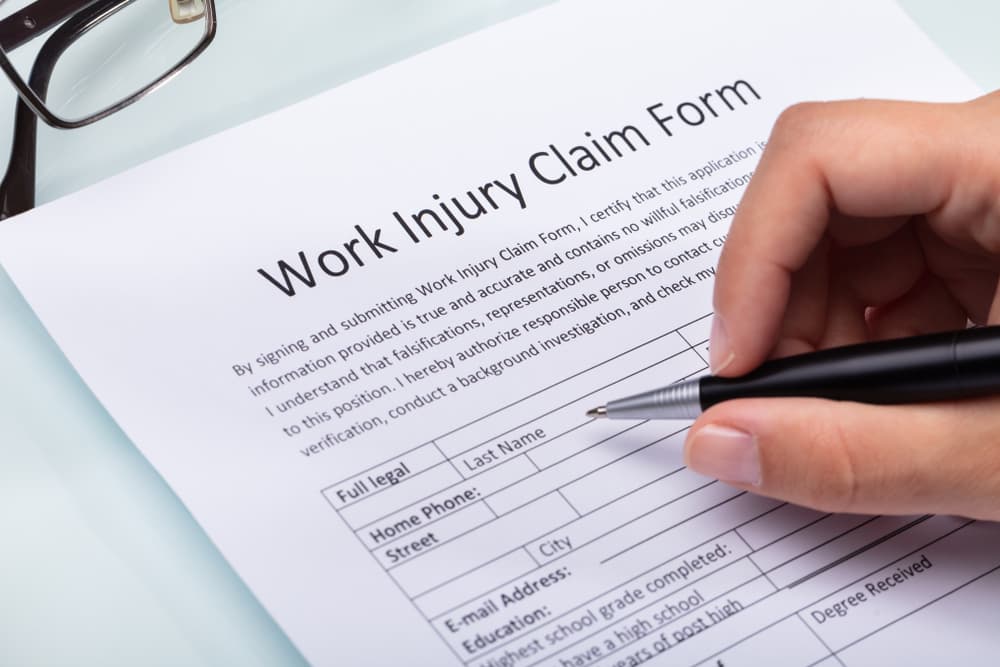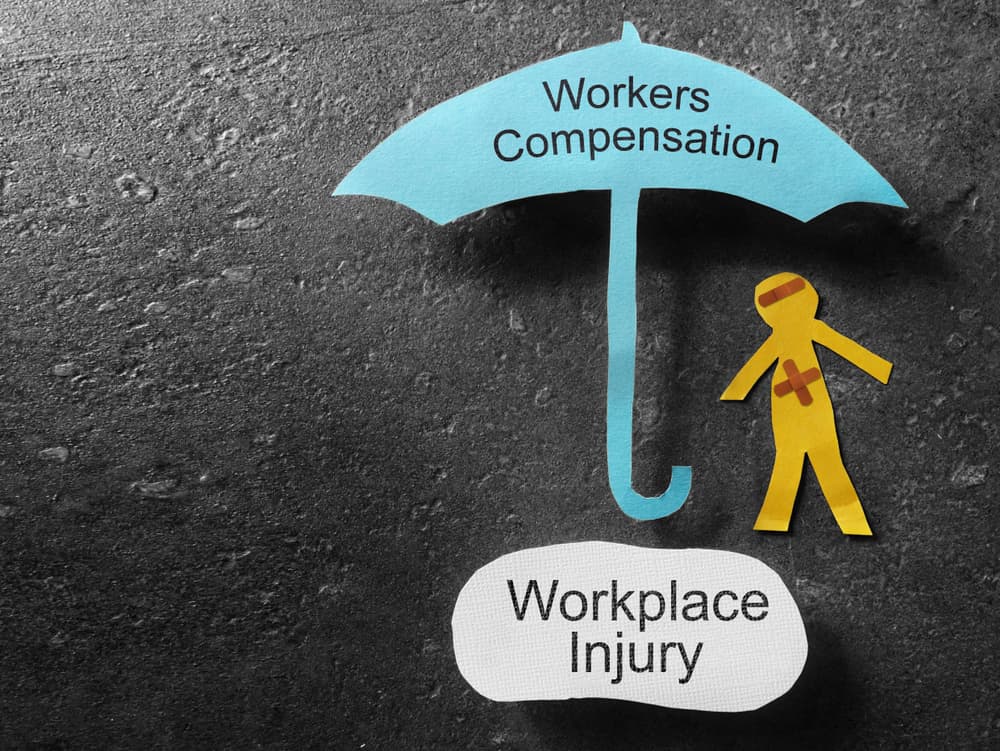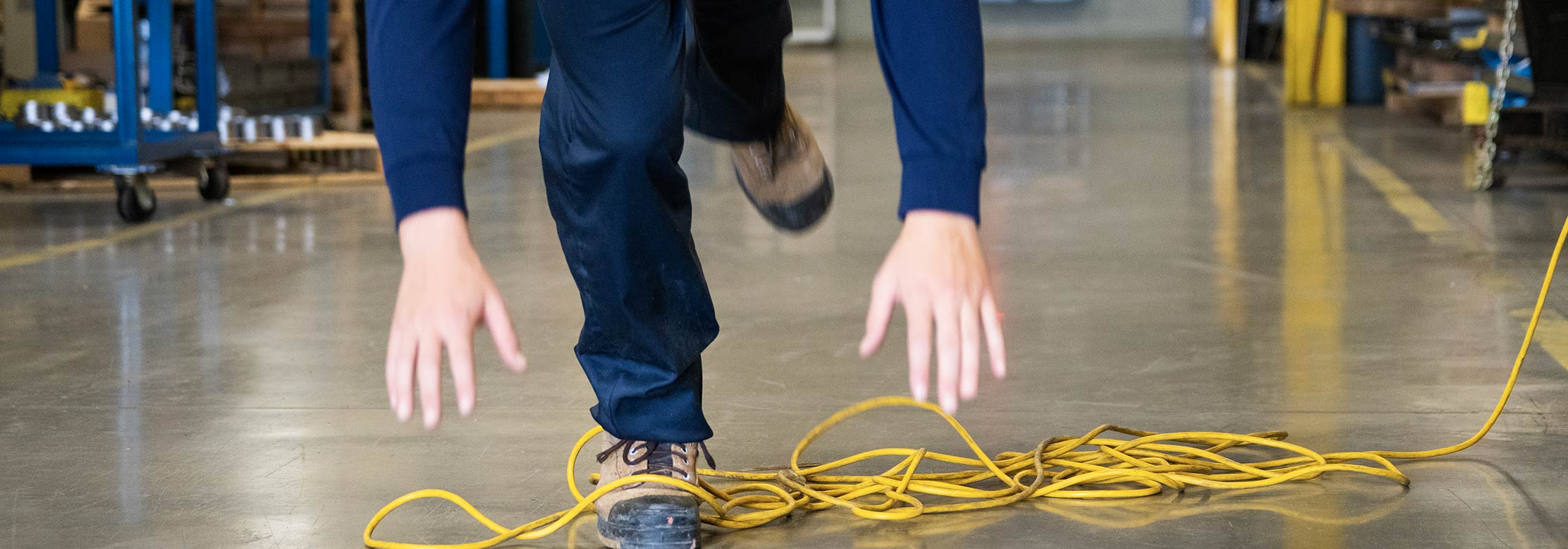Medical professionals, including doctors, nurses, and nursing assistants, are exposed to various hazards and injuries while they are on the job. When healthcare workers suffer medical complications due to a workplace hazard, they may be eligible to bring a claim for various workers’ compensation benefits – or file a third-party claim for monetary damages. A knowledgeable workers’ compensation lawyer in your area can take the appropriate steps on your behalf in pursuit of the compensation you need for your workplace injury.
Common Workplace Accidents in a Medical Setting

In healthcare facilities, such as hospitals, doctor’s offices, surgical centers, and nursing homes, workplace accidents are unfortunately all too common. Among the most prevalent are slips, trips, and falls. These accidents can occur due to wet or slippery floors, cluttered walkways, uneven surfaces, or inadequate lighting. Medical workers may also be at risk of tripping over equipment or cables – especially in crowded or busy areas – leading to injuries ranging from bruises and sprains to more serious fractures or head trauma.
Moreover, equipment-related accidents are a common occurrence in healthcare facilities. Malfunctions, misuse, or lack of proper maintenance can lead to incidents involving medical devices, machinery, or technology. Accidental needlesticks, electrical shocks, or equipment failures during procedures can cause injuries ranging from minor cuts or burns to more severe wounds or complications.
In addition to these accidents, workplace violence is a growing concern in the medical setting. Healthcare workers may encounter aggressive or hostile behavior from patients, their family members, or even coworkers. Verbal abuse, threats, physical assaults, or incidents of harassment can occur in various healthcare settings, putting medical professionals at risk of physical harm, emotional trauma, or psychological distress.
Exposure to hazardous materials or substances is another significant risk for medical workers. Whether through contact with chemicals, biological agents, or radioactive materials, healthcare professionals face potential risks of contamination, poisoning, or long-term health effects.
Lastly, ergonomic injuries are a common concern for medical professionals due to the physical demands of their work. Prolonged standing, lifting, bending, or performing repetitive tasks can lead to musculoskeletal disorders such as strains, sprains, or carpal tunnel syndrome.
If you sustained injuries in one of these types of workplace occurrences, an experienced workers’ compensation lawyer in your area can determine your eligibility for filing a claim and take the appropriate steps on your behalf.
Common Injuries for Medical Workers
Medical workers face a myriad of risks while performing their duties, often resulting in a range of injuries.
- Among the most common are musculoskeletal injuries, which affect the muscles, tendons, ligaments, nerves, and bones. These injuries often occur due to lifting, transferring, or repositioning patients, as well as from repetitive tasks such as typing or performing procedures. Overexertion and awkward postures contribute significantly to these injuries, leading to strains, sprains, and even fractures.
- In addition to musculoskeletal injuries, medical workers are also susceptible to needlestick injuries. These occur when a sharp medical object, such as a needle or scalpel, accidentally punctures the skin. Needlestick injuries pose a significant risk of transmitting bloodborne pathogens, including HIV, hepatitis B, and hepatitis C, making them not only physically harmful but also potentially life-threatening.
- Another common injury among medical workers is exposure to infectious diseases. Despite stringent safety protocols, healthcare professionals may still come into contact with infectious agents through patient bodily fluids or contaminated surfaces. This exposure puts them at risk of contracting illnesses ranging from the common cold to more severe infections like tuberculosis or COVID-19.
- Burn injuries are also prevalent among medical workers – particularly those working in operating rooms or emergency departments. Exposure to heat sources, chemicals, or electrical equipment can lead to burns of varying degrees, causing pain, tissue damage, and, in severe cases, permanent scarring.
- Lastly, ergonomic injuries are a concern for medical professionals who spend prolonged periods standing, bending, or performing repetitive motions. These injuries often affect the back, neck, shoulders, and wrists, resulting in discomfort, reduced mobility, and decreased productivity.
If you suffered one or more of these injuries while working in a healthcare setting, your top priority should be obtaining the medical treatment you need. In the meantime, an experienced workers’ compensation lawyer in your area can begin investigating your workplace circumstances, gathering documentation, and preparing your claim for filing.
How Medical Workers Can File a Workers’ Compensation Claim
When medical workers sustain injuries while on the job, filing a workers’ compensation claim is crucial to receiving the necessary support and benefits. Here’s how injured medical workers can navigate the process:
- Report the Injury – The first step for a medical worker who has suffered an injury on the job is to report the injury to their employer or supervisor as soon as possible. Prompt reporting is essential to ensure that the incident is properly documented and investigated.
- Seek Ongoing Medical Attention – It’s also important for injured medical workers to seek ongoing medical attention. Depending upon the severity of their injury, this may involve visiting on-site healthcare providers or seeing their primary care physician or a specialist. Thorough documentation of the injury and treatment is crucial for the workers’ compensation claim.
- Complete Necessary Forms – Employers typically provide injured workers with the necessary forms to initiate the workers’ compensation claim process. These forms may include an incident report, a claim form, and any additional documentation required by the state or employer.
- Submit the Claim – Once the required forms are completed, a workers’ compensation lawyer can submit them to the employer or the workers’ compensation insurance carrier. It’s important to keep copies of all documentation for personal records.
- Follow-Up – After submitting the claim, your attorney will follow up with the employer or the workers’ compensation insurance carrier to ensure that the claim is being processed promptly. They may need to provide additional information or documentation as requested.
- Attend Medical Evaluations – In some cases, the workers’ compensation insurance carrier may require injured medical workers to attend medical evaluations with healthcare providers that the insurance company selects. These evaluations help assess the extent of the injury and determine the appropriate benefits.
- Receive Benefits – If the workers’ compensation claim is approved, injured medical workers may be entitled to various benefits, including coverage for medical expenses, compensation for lost wages during recovery, vocational rehabilitation services (if necessary), and disability benefits if the injury results in a permanent impairment.
- Appeal if Necessary – If a workers’ compensation claim is denied or disputed, injured medical workers have the right to appeal the decision. This step may involve a lawyer filing an appeal with the workers’ compensation board.
An experienced workers’ compensation lawyer can handle every step of the claims-filing process and represent you during any legal proceedings that take place before the Workers’ Compensation Commission.
Recoverable Workers’ Compensation Benefits for Injured Medical Workers
Medical workers who suffer work-related injuries or illnesses are entitled to various recoverable workers’ compensation benefits to support them during their recovery process. These benefits aim to provide financial assistance and access to necessary medical treatment and services. Here are some of the recoverable workers’ compensation benefits available to injured medical workers:
- Medical Expenses Coverage – Workers’ compensation typically covers all reasonable and necessary medical expenses related to the treatment of a work-related injury or illness. This includes doctor visits, hospital stays, surgeries, prescription medications, physical therapy, and other medically necessary treatments.
- Temporary Disability Benefits – If a work-related injury or illness prevents a medical worker from performing their job duties temporarily, they may be entitled to temporary disability benefits. These benefits provide compensation for a portion of the worker’s lost wages during their recovery period – typically until they are able to return to work or reach a level of maximum medical improvement.
- Permanent Disability Benefits – In cases where a work-related injury or illness results in permanent impairment or disability, medical workers may be eligible for permanent disability benefits. These benefits provide ongoing financial support to compensate for the loss of earning capacity and other permanent effects of the injury or illness.
- Vocational Rehabilitation Services – Workers’ compensation may also cover vocational rehabilitation services for medical workers who are unable to return to their previous job due to a work-related injury or illness. These services may include job retraining, vocational counseling, job placement assistance, and other support services to help injured workers transition to new employment opportunities.
- Death Benefits – In the unfortunate event that a work-related injury or illness results in the death of a medical worker, workers’ compensation may provide death benefits to their dependents. These benefits typically include compensation for funeral expenses and ongoing financial support for surviving spouses, children, or other dependents.
- Travel Expenses – Workers’ compensation may also cover reasonable travel expenses that medical workers incur for medical treatment related to their injury or illness. This may include mileage reimbursement for travel to doctor appointments, physical therapy sessions, or other necessary medical visits.
It’s important for injured medical workers to understand their rights and eligibility for workers’ compensation benefits in the event of a work-related injury or illness. Employers are required to provide information about workers’ compensation benefits and assist injured workers with filing their claims.
An experienced workers’ compensation lawyer can help the injured worker navigate the process and pursue the maximum amount of benefits they deserve. By accessing these recoverable benefits, medical workers can receive the support they need to recover from their injuries and return to work safely.
Filing a Third-party Claim for Injuries on the Job
In addition to workers’ compensation benefits, medical workers who suffered an injury on the job may have the option to file a third-party claim (or lawsuit) to recover additional compensation. Here’s how the process works:

- Identify Potential Third Parties – A third-party claim arises when someone other than the employer or a coworker is responsible for the worker’s injury. In a medical setting, potential third parties may include manufacturers of defective medical equipment, negligent drivers in motor vehicle accidents, or contractors responsible for unsafe working conditions.
- Gather Evidence – To pursue a third-party claim, injured medical workers must gather evidence to support their case. This may include medical records, accident reports, witness statements, photographs of the scene, and any other relevant documentation that demonstrates liability on the part of a third party.
- Consult an Attorney – Since third-party claims can be complex, it’s important for injured medical workers to consult an experienced personal injury attorney who regularly handles workplace accident cases. An attorney can assess the circumstances of the injury, determine liability, and guide the injured worker through the legal process.
- File the Third-party Claim – Once liability is established, the attorney will file a third-party claim on behalf of the injured medical worker against the responsible party or parties. This claim seeks compensation for damages such as medical expenses, lost wages, pain and suffering, and other losses incurred as a result of the injury.
- Negotiate a Settlement – In many cases, third-party claims are resolved through negotiation between the parties involved, their attorneys, and their insurance companies. The goal is to reach a fair settlement that adequately compensates the injured medical worker for their losses without the need for a trial.
- Litigation, if Necessary – If a settlement cannot be reached through negotiation, the case may proceed to litigation, where it might require a court trial. During litigation, both sides present evidence, witnesses testify, and a judge or jury determines the outcome of the case.
- Recover Compensation – If the third-party claim is successful, the injured medical worker may be entitled to recover compensation for their damages, which can help cover medical bills, lost wages, rehabilitation costs, and other expenses associated with the injury.
By pursuing a third-party claim in addition to workers’ compensation benefits, injured medical workers can maximize their chances of receiving fair compensation for their injuries and losses sustained while on the job.
Speak with an Experienced Workers’ Compensation Lawyer in Your Area Today
If you recently suffered injuries on the job as a healthcare worker, an experienced workers’ compensation lawyer can help. Your attorney can determine your options, answer your questions, and file a claim for the benefits and compensation you need.







